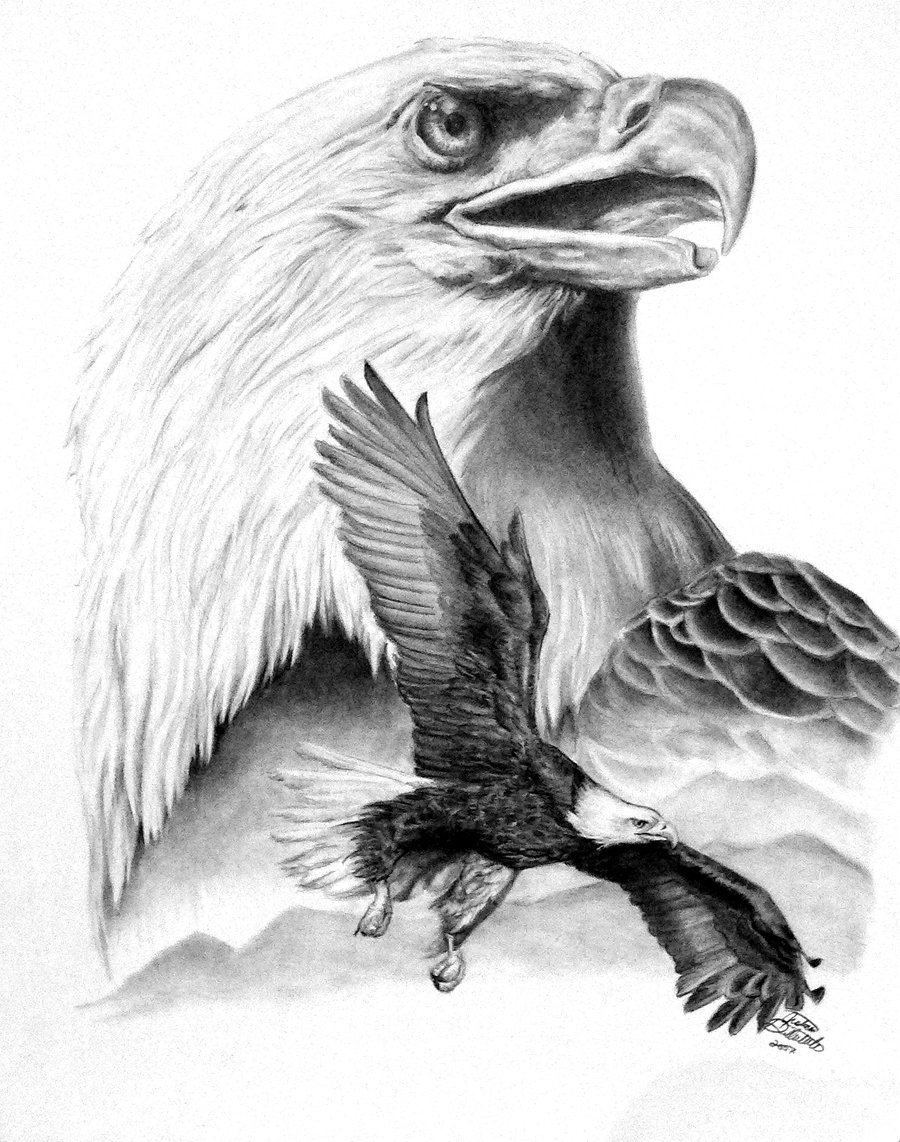Bald Eagle Drawings Sketches
Have you ever been on a hike and caught a glimpse of a bald eagle soaring overhead? It's truly a magnificent sight! Just take a look at this stunning image of a bald eagle, captured by the talented photographer Mary Stickler Blank.

Bald eagles are the national bird of the United States and for good reason. They're powerful, majestic, and a symbol of freedom and strength.
In this post, we're going to delve into the fascinating world of bald eagles. From their physical characteristics to their behavior and habitat, we'll cover it all. So sit back, relax, and get ready to learn all about these incredible birds.
The Anatomy of a Bald Eagle
Let's start with the basics, shall we? A bald eagle is a bird of prey and a member of the Accipitridae family. They're easily recognizable by their white head and tail feathers and dark brown body.
But did you know that bald eagles aren't actually bald? The name "bald" comes from the Old English word "balde," which means "white." So the correct term for this bird should actually be "white-headed eagle."
Bald eagles have a wingspan of up to 7 feet and can weigh between 8-14 pounds. Their sharp talons and beak are perfectly adapted for hunting and catching prey, which is usually fish.
Speaking of their beak, did you know that a bald eagle's beak is actually a multipurpose tool? It's used to catch and hold prey, tear apart their food, and even regulate their body temperature.
The Habits of a Bald Eagle
Now that we've covered the physical characteristics of a bald eagle, let's talk about their behavior. Bald eagles are solitary birds and typically mate for life.
During breeding season, the male and female build a nest together, which can be up to 13 feet tall and 8 feet wide. They'll continue to use and add to the same nest year after year.
Bald eagles are known for their impressive hunting skills. They have keen eyesight and are able to spot prey from a distance of up to 2 miles away! Their favorite food is fish, but they'll also eat small mammals, birds, and even carrion.
The Habitat of a Bald Eagle
Bald eagles are found throughout North America, from Alaska all the way down to Florida. They prefer to live near bodies of water, like lakes and rivers, where they can hunt for fish.
As you can imagine, habitat loss and pollution have had a negative impact on bald eagle populations. In 1963, there were only 417 nesting pairs of bald eagles in the United States. Thanks to conservation efforts and the banning of the pesticide DDT, their population has rebounded to over 70,000 individuals today.
How to Spot a Bald Eagle
If you want to see a bald eagle in the wild, there are a few tips that can increase your chances:
- Visit areas near bodies of water
- Look for tall trees or structures where they might be perched
- Use binoculars or a spotting scope to scan the area
- Be patient and quiet, as bald eagles are easily spooked
Tips for Photographing Bald Eagles
If you're lucky enough to spot a bald eagle, you'll want to capture the moment with your camera. Here are some tips to get the best shot:
- Invest in a telephoto lens for close-up shots
- Use a fast shutter speed to capture them in flight
- Focus on their eyes to create a more engaging image
- Pay attention to lighting and avoid harsh midday sun
The Bottom Line
Bald eagles are truly one of the most magnificent birds in the world. From their impressive physical characteristics to their fascinating behavior and habitat, there's always something new to learn about these incredible creatures.
So the next time you're out in nature, keep an eye out for a bald eagle soaring overhead or perched on a tree branch. It'll be a sight you won't soon forget!


Post a Comment for "Bald Eagle Drawings Sketches"